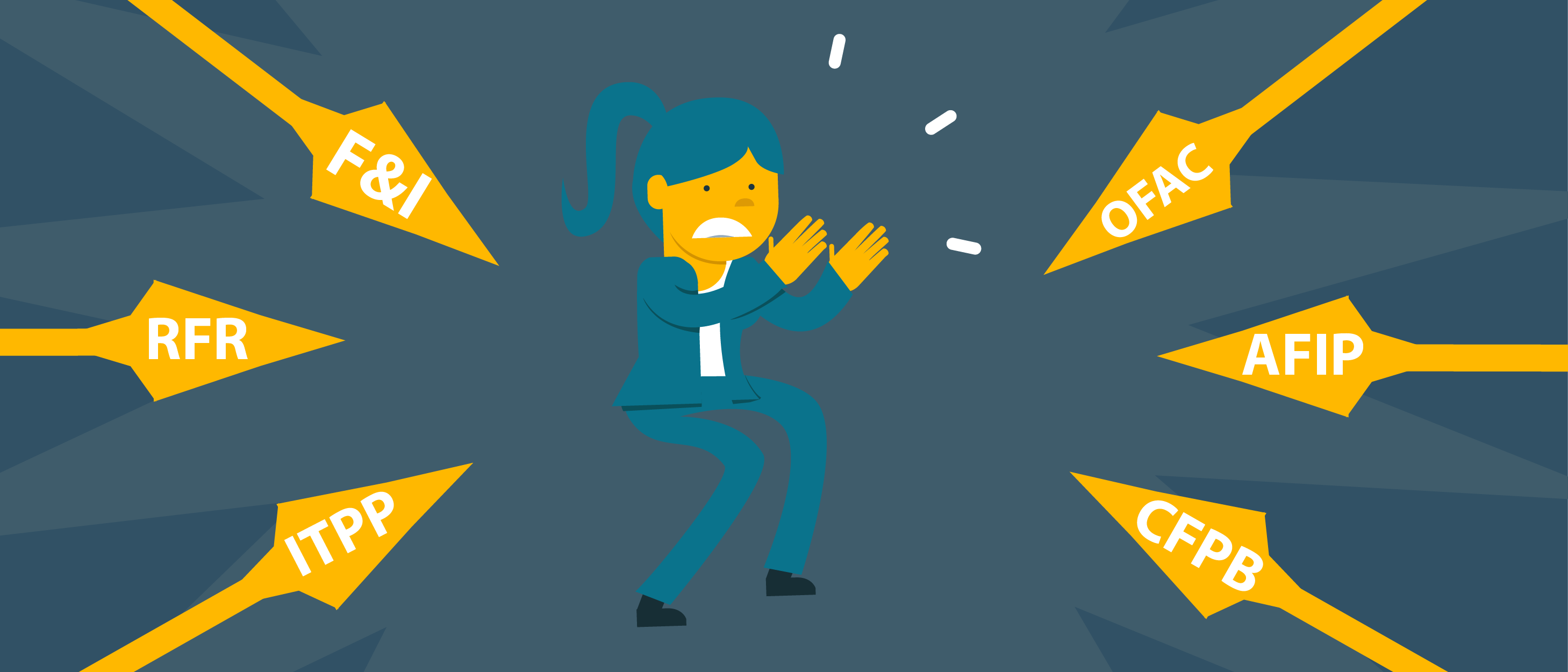Talk to Sales: (401) 200-6026
Are you at risk for dealership compliance violations?
Dealership compliance has spread like wildfire since the passing of Dodd-Frank and the formation of the Consumer Finance Protection Bureau. There are numerous strict regulations, from F&I to marketing to inventory, that it’s your job to stay on top of.
How is it possible to keep up? As an owner, protecting yourself from these dealership compliance issues is a big deal. The penalties are potentially enormous and career-ending if you don’t watch your step.
At the same time, if you’re putting in the right amount of effort to stay on top of these issues, you’ll be fine. It’s all a matter of awareness, training, and prevention. Because there are so many regulations to adhere to, it’s wise to strategize so that no one in your dealership ends up breaking the rules. Blaming non-compliance as “an accident” won’t save you in a courtroom.
Strategies for dealership compliance: the best ways to identify risk and squash it
1. Assign a compliance officer to review and update your dealership’s policies
It’s a law to designate a compliance officer in every dealership.
Here’s some advice: take this position and its responsibilities seriously.
Your officer is the spearhead of your compliance strategy. Send him to seminars, trainings, certification courses—anything that will help him protect your dealership from exposure. Here are a few ideas that will benefit your dealership.
- Invest in training from the Association of Finance and Insurance Professionals (AFIP).
- Have him teach best practices to the F&I and sales staff.
- Work with him to create a standard procedure that follows all the rules.
2. Review your Identity Theft Prevention Plan (ITPP) and train your staff
Identity theft prevention is paramount for car dealerships. The Red Flags Rule (RFR) mandates that your staff must be proficiently trained in examining the actual identity of your customers. The RFR is of particular importance because there are so many ways to fall into non-compliance, even when you think you’re doing it right. Besides training your staff to make more sales, you need to make sure they know who they’re selling to.
Don’t take these regulations for granted—identity theft is widespread in the U.S.
- Review your ITPP and update it with the latest practices set down by the RFR.
- Train your staff on how to identify red flags.
- Make a protocol of what to do if the salesperson is concerned about the identity of his customer.
- Always keep a paper trail of all documentation and scheduled trainings.
3. Hire a legal consultant to pinpoint issues
If your dealership compliance needs work, consider hiring a consultant to audit your procedures and set up a compliance checklist. This would be a perfect learning opportunity if you’re newly appointing a compliance officer.
It may be an added expense, but long-term it will cost much less than being slapped with a fine for being non-compliant. Think about it as insurance for your dealership’s future.
You may choose to hire a legal consultant to review your entire dealership once and leave the responsibility on your compliance officer moving forward. Another option is to create room in your budget to have a legal consultant do a large first-time audit, and then return annually to review the compliance officer’s overall work.
4. Create a standard process for all your salespeople to streamline compliance
Most of your salespeople know about the various dealership compliance regulations, but they may not know them enough to understand all the angles and consequences. Some people will cut corners on these rules. They’ll get comfortable, go about every deal in a casual way, and then it’s on your head when they screw up.
Don’t let that happen. Create a standard process for your sales team. Hit every point necessary, and make it clear that these steps are mandatory.
- Adverse action notices
- Credit score disclosure notices
- OFAC checks on customers
- Gaining permissible purpose for credit reports
- Following all steps under the Red Flags Rule
Those are only a few of the regulations your dealership must follow. The best way to stay fully compliant is to have your compliance officer provide quarterly trainings and audit sales files regularly.
Awareness and prevention are your greatest assets in dealership compliance

As a disclaimer, it’s worth mentioning that, although we do write about these topics with authority, this is not to be taken as legal advice or counsel. If you want to receive that kind of help (which you might want to), then there are plenty of consultants and lawyers tackling this field right now.
Do you have an opinion about a particular dealership compliance issue? Share your thoughts in the comments and let us know!
Interested in an Affordable, Full-Featured Auto Dealer CRM?
Schedule an AutoRaptor Demo Now!






